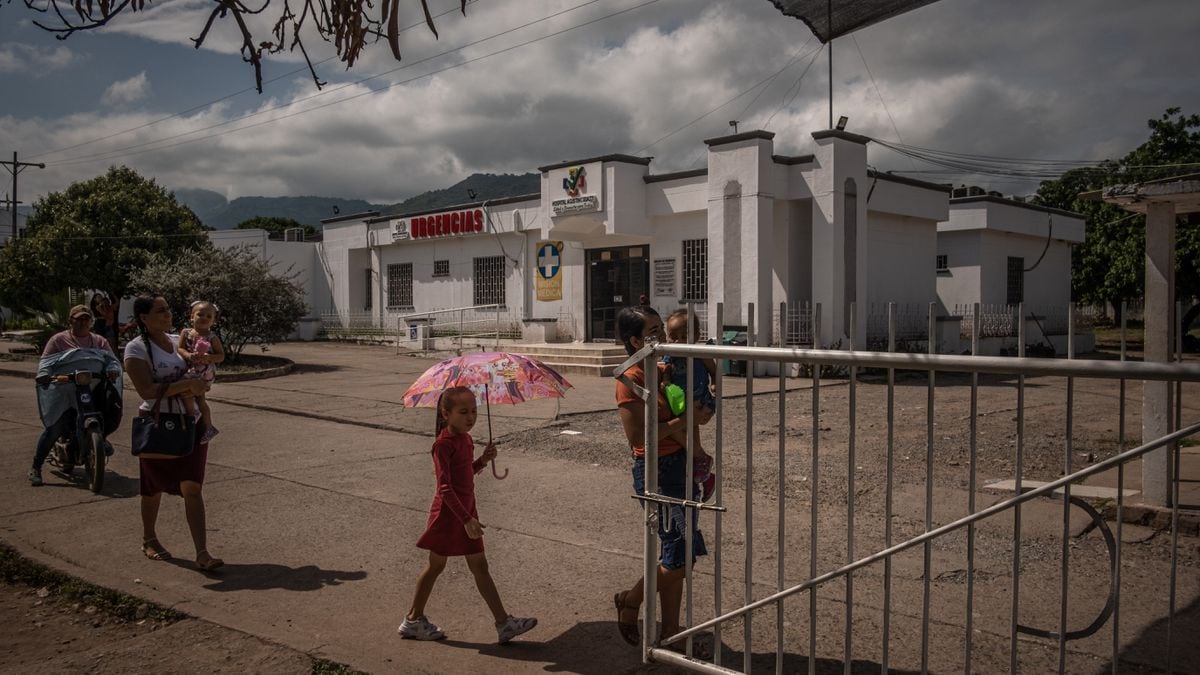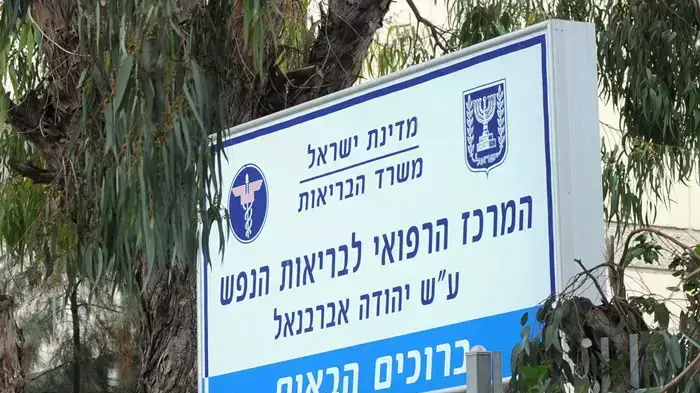"Excuse me ma'am, I understand you are busy, but please, my wife is connected to all the devices and she needs to go to the bathroom. I asked the nurse, she said she would come soon and disappeared. I asked another one - she didn't answer, but how much can you hold back? How much? Maybe someone will come now and free her from all the devices ?"
The sweat that dripped over the man's eyes testified to the great stress he was under.
With a pale accent, he stood next to the doctors' island in the heart of the emergency room and waited for the doctor's answer.
The doctor continued typing and looking at the computer screen in front of her, without looking away, and answered in a dry voice: "So what's the problem? Bring her a pot."
The man is broken.
His voice had lost any trace of politeness or reasonable volume of speech.
"What do you mean 'bring her a pot?' Patients... look how you behave."
In the silence that remained at the end of the shouting, the sound of the doctor's hands typing was even louder.
"There are pots in the warehouse near the bathroom," she said without taking her eyes off the computer screen.
The man sullenly left the position while doubt muttering doubt cursing.
The doctor continued typing.
A second before explosion
"This doctor is not to blame. The burnout of the doctors means that they are unable to see the patient, and are unable to give him personal treatment or respect, and when violence breaks out, they talk about placing more security guards, and this does not solve any problem," says Dr. Dorit Efrat-Treister From the Faculty of Management at Ben-Gurion University in Be'er Sheva.
Since 2009 Efrat-Treister has been investigating violence against medical staff in hospitals, and how it can be prevented.
"I was in Prof. Anat Refali's research team, I went to observe a hospital where there were eight daily cases of violence that required a call to the police, I sat there for hours and hours. That way I could follow the sequence of events that led to the outbreak, and I know that violence in hospitals can be significantly reduced ".
Efrat-Traister does not place the reduction of violence in the responsibility of the medical staff, due to the burden they are under: "The key point is to understand what are the causes of violence, and not to add more security guards, because no matter how many security guards there are, when they are working it is already too late."
So what causes violence to break out precisely in the place where people come to be helped and healed?
"The first factor is a lack of understanding between the many cultures that exist in Israel. Medical information is not accessed correctly or in the appropriate language, and in every culture people are offended by completely different things, and the causes of violence are different. For example, if someone from a collectivist society, whose organizing framework is the family or tribe, comes to the ER and let him bring in only one attendant - he has to choose one of the family members and insult the rest. The patient enters in anxiety, and the family outside is left with an insult. On the other hand, in an individualistic society the most important thing is a sense of justice and fairness. There is nothing more insulting than the feeling that you have been overtaken In line. If you didn't get to the emergency room in an ambulance and they put you straight in for treatment, you'll always feel like you came out a sucker."
Efrat-Treister says that she found no significant differences in the level of violence among different companies.
"This is the same intensity of violence among Jews of Ashkenazi or Sephardic origin, Bedouins, Ethiopians, Arabs, Druze, CIS expatriates. Everyone knows how to be violent, but the expression of violence can look different. The violence can manifest itself in anything from yelling and pushing to legal action." .
To reduce the lack of understanding between different cultures, Efrat-Treister gave a short course in cultural sensitivity to Arabic-speaking and Russian-speaking students.
"We translated the consent page that the patients receive upon entering the emergency room into Arabic, Russian and English," she says, "everything there is written in Hebrew that they don't understand, except for the price of NIS 904. Everyone who came to the emergency room received a page in a language they understood, and were asked in their mother tongue how they felt and how We can help. This small intervention reduced the tendency to violence by 40 percent. The hospital where the experiment was conducted jumped from the last place to the first in terms of patient satisfaction!"
"No arguments in the Knesset"
One of the main and most annoying complaints in recent years when arriving at hospitals is the huge queues that patients have to deal with.
Efrat-Treister is aware of the problem and says that "using large posters, we explained to the patients that the queue at the emergency room is not like a queue at the supermarket, and who enters is not the one who arrived first, but according to the severity of the situation. "When individualists see someone coming after them and enters before them, their fuse pops, they are sure that they are suckers
On top of that, we informed the patients in advance that their stay would be an average of five hours.
Thus, patients who waited between two and five hours realized that they were not 'suckers', although many of them became annoyed when five hours had passed.
Apparently they forgot what an average is.
In any case, it lowered the tendencies to violence by 40 percent on average."
So the waiting time is not the main cause of violence?
"The problem is the perception of the waiting time. An hour can pass in a minute or feel like an eternity. I suggested distracting the patients and we discovered that a medical clown is very effective among children, but it increases the tendency to violence among adults. Some thought he was making fun of them.
"For adults, I recommend putting appropriate distractions. A library in the emergency department or media screens. For some reason, the existing screens show news and violent media - explosions, terrorist attacks, fights in the Knesset. Instead of distracting the patients, it provokes violence. It is better to put pictures of a grandmother and grandson, puppies of Animals, interesting and calm things, certainly not debates in the Knesset."
What would you advise the incoming Minister of Health, Haim Biton, to do?
"Appoint people responsible in the hospitals to reduce the violence. There should be intervention assistants who speak many languages, volunteers, national service, even high school students can do it. The point is that the medical staff should not bother with this, they are collapsing from the majority of people who come to the emergency room - and this should also be significantly reduced" .
how?
"You need to exercise more discretion when to go to the emergency room. For the sake of comparison, to get to the emergency room in Canada you need a telephone referral from a nurse, and if it is not an emergency, the patients are referred to community clinics. In Canada, those who come to the emergency room experience an average waiting time of one hour. Also, Negative reinforcement should be given to those who behave violently. In Canada, a violent patient is removed from the hospital, entered into a blacklist and from now on will have to travel further away to receive treatment.
"There is a certain percentage of the population that has become accustomed to being violent in order to achieve their goals; they are violent on the road, violent in the street, and violent in the hospital. For this audience, the interventions I proposed are not relevant; but the majority of the population is normative, and their fuse can still jump when they are under stress, and the ER is a place with many Pressure. Patients need to be given the feeling that they are seen, aware of their plight, respected and given personal treatment in a language they understand. As soon as the Ministry of Health and the hospitals allocate personnel to meet these basic needs, violence will decrease significantly."
were we wrong
We will fix it!
If you found an error in the article, we would appreciate it if you shared it with us


/cloudfront-eu-central-1.images.arcpublishing.com/prisa/OJSQ7GWB5BC4XBQDMMJFYJF5BU.jpg)









/cloudfront-eu-central-1.images.arcpublishing.com/prisa/KMEYMJKESBAZBE4MRBAM4TGHIQ.jpg)


